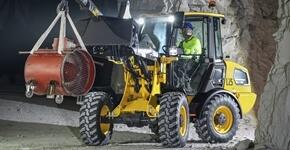The Spirit of Zero Emission
 Indonesia’s commitment to achieve emission reduction and Net Zero Emissions by 2060 seems to be questionable. This is because in mid-2023, air pollution in Indonesia has become a prominent headline in the media. Few months ago, CNN News report declared Jakarta as the world’s most polluted city. The headline even mentioned that Indonesia’s leader may have the cough to prove it. Moreover, the Living Air Quality Index (AQLI) Report mentioned Indonesia as one of the six countries that contributes the most to global air pollution. Referring to IQ Air’s air quality monitoring page, from September 9–17, Jakarta’s air pollution index was “unhealthy for sensitive groups”.
Indonesia’s commitment to achieve emission reduction and Net Zero Emissions by 2060 seems to be questionable. This is because in mid-2023, air pollution in Indonesia has become a prominent headline in the media. Few months ago, CNN News report declared Jakarta as the world’s most polluted city. The headline even mentioned that Indonesia’s leader may have the cough to prove it. Moreover, the Living Air Quality Index (AQLI) Report mentioned Indonesia as one of the six countries that contributes the most to global air pollution. Referring to IQ Air’s air quality monitoring page, from September 9–17, Jakarta’s air pollution index was “unhealthy for sensitive groups”.
The above issues have also become a big concern for business actors, especially in the mining industry. Many mining business actors ultimately have to develop new technology to support the Government’s commitment to reducing carbon emissions, while on the other hand have to keep their business sustainable. This spirit can be seen in the last exhibition of Energy & Engineering Series 2023 (IEE Series 2023) with the theme “Towards Industrial Sustainability”. This exhibition was held on September 13–16, 2023, at the Jakarta International Expo, Kemayoran, and presented more than 2,100 exhibiting companies from 36 countries, consisting of 8 business sectors, including electricity, oil and gas, mining, construction, concrete and building technology, irrigation management, and foundry and metallurgical technology.
SALAKI, as #Indonesiantaxconsultant located in South Jakarta, took part in the exhibition by sending 3 (three) associates as delegates on September 15, 2023. It was fascinating for us to discover how business actors implement sustainable values in the industry while still are committed to support national economic growth. The following are our observations:
Electric Powered Heavy Equipment
One innovation that was apparent throughout the exhibition was electric-based heavy equipment. So far, business players in the heavy equipment industries that have had this innovation are United Tractors, XCMG, and Volvo. The heavy equipment industry claims that electricity-based heavy equipment has advantages over conventional heavy equipment. The most prominent advantage is that the heavy equipment they manufacture does not produce carbon emissions. As we all know, electric-powered heavy equipment does not use an internal combustion engine that uses fossil fuels. The source of electrical power in heavy equipment is stored in a battery which obtains electrical power from an external electrical power source or generator, via portable charging tools or charging station. Even though it uses electric power, this heavy equipment is considered to have a productivity level that is equivalent to conventional heavy equipment. In addition, relatively low noise level and minimal vibrations during use are other advantages of this equipment. With all these advantages, electric-powered heavy equipment can help industries meet sustainability standards.
Currently, charging station in mining areas are still limited. To maximize the use of electric heavy equipment, mining industry players must of course build charging infrastructure around mining areas. Since it is one of the most significant challenges, these industry players hope that the government can provide support in the form of building more charging infrastructure at mining locations.
Fly Ash & Bottom Ash (FABA)
 As a way to also support the movement towards sustainability and zero-emission, PT. PLN as the Indonesian state-owned company (“PLN”) participates through intensifying the use of Fly Ash & Bottom Ash (“FABA”) as recycling materials. FABA is a residual waste produced during coal combustion in power plants. The fine particle ash that rises up with the flue gases is known as fly ash, while the heavier ash that does not rise is called bottom ash. In 2021, the government issued Government Regulation Number 22 of 2021 (PP No. 22/2021) concerning the Implementation of Environmental Protection and Management which states that FABA is no longer included in the hazardous waste (B3) category. Since then, PLN Nusantara Power (“PLN NP”), a sub-holding company of PLN, has begun to intensify the use of FABA as a recycled material. During the exhibition, PLN NP also presented and informed visitors that FABA could be utilized and become raw material with high economic value. Based on the publication from PLN NP, the following are few of the purposes of FABA:
As a way to also support the movement towards sustainability and zero-emission, PT. PLN as the Indonesian state-owned company (“PLN”) participates through intensifying the use of Fly Ash & Bottom Ash (“FABA”) as recycling materials. FABA is a residual waste produced during coal combustion in power plants. The fine particle ash that rises up with the flue gases is known as fly ash, while the heavier ash that does not rise is called bottom ash. In 2021, the government issued Government Regulation Number 22 of 2021 (PP No. 22/2021) concerning the Implementation of Environmental Protection and Management which states that FABA is no longer included in the hazardous waste (B3) category. Since then, PLN Nusantara Power (“PLN NP”), a sub-holding company of PLN, has begun to intensify the use of FABA as a recycled material. During the exhibition, PLN NP also presented and informed visitors that FABA could be utilized and become raw material with high economic value. Based on the publication from PLN NP, the following are few of the purposes of FABA:
- For construction of houses – to be used as raw materials for bricks and cements;
- For improving infrastructure and mobility access – to be used as raw materials for asphalt mix;
- To reduce the accumulation of ash waste at the final processing site (Tempat Pemrosesan Akhir/TPA).
Ultimately, the use of FABA has been known to support government programs for sustainable development.
After the removal of FABA from the list of hazardous waste, hopefully in the future the government will provide other support both in establishing the required regulations and various pilot projects for utilizing FABA through PLN Group collaboration with the local government, starting from the central, regional, and to village level.
From the exhibition, we clearly see that many of the big players in the mining industry have been carrying out their respective roles to achieve Net Zero Emission. However, are those steps taken by these industry players have the positive implications to the environment as originally intended? Is simply using electric-powered heavy equipment a solution? What about the fact that the main raw material for producing electricity in Indonesia is actually coal? Can FABA use be effective in reducing carbon emissions? All of these things are of course still question marks that need to be studied further. Hopefully the government initiative can be achieved and both business actors and the government will continue to innovate in developing new technologies to achieve Net Zero Emission.
Sources:
https://edition.cnn.com/2023/08/16/asia/indonesia-pollution-jokowi-cough-intl-hnk/index.html https://www.bbc.com/indonesia/articles/c72enp76622o
https://www.cnnindonesia.com/teknologi/20230920173550-199-1001597/sempat-membaik-9-hari-udara-jakarta-kembali-memburuk
https://www.jawapos.com/otomotif/012963039/tren-ev-industri-alat-berat-hadirkan-produk-berbasis-listrik
https://www.indotruck-utama.co.id/
http://ikft.kemenperin.go.id/bgnl-3/
https://www.volvoce.com/
https://www.instagram.com/p/CtlDYHPvC8x/?img_index=1
Writers: Oki Merina, Ahmad Khadafi & Desi
